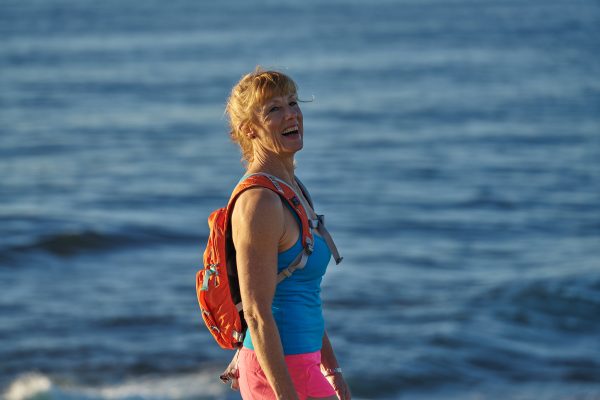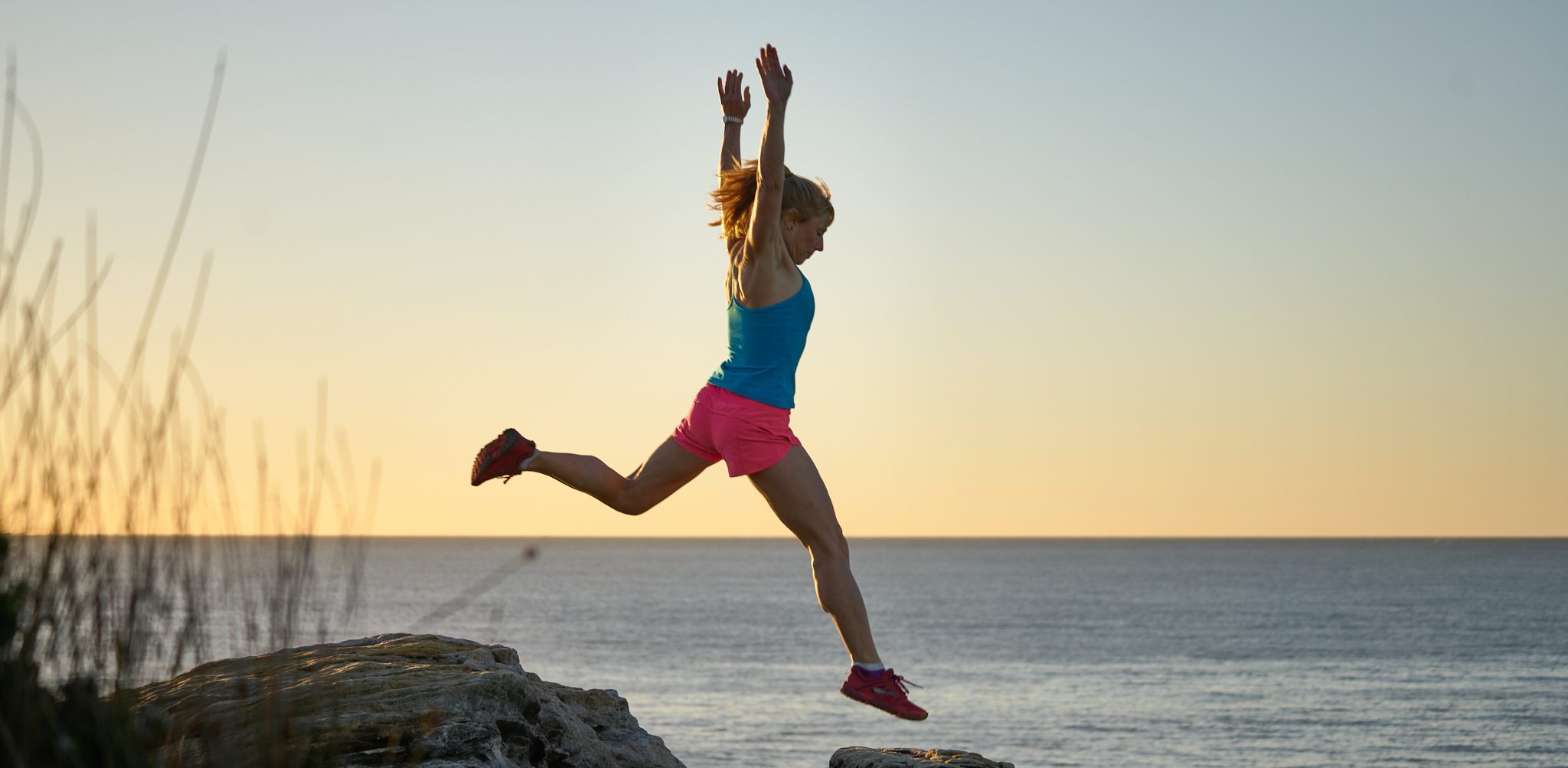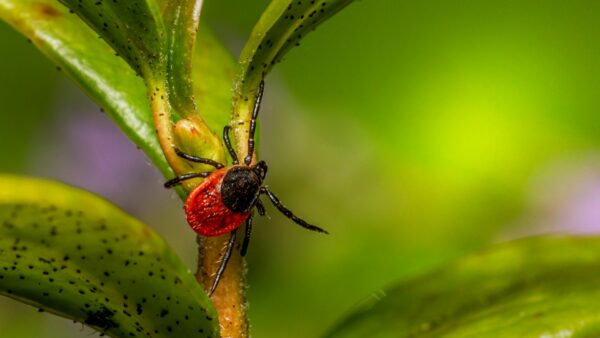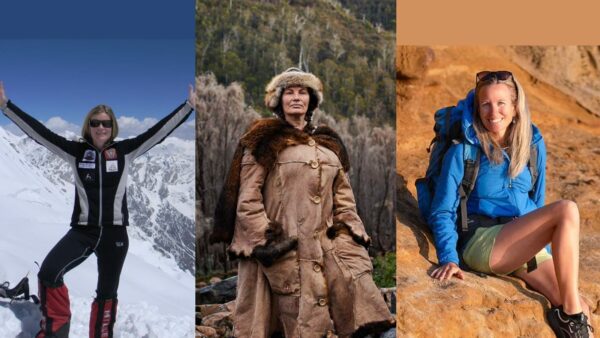Our Wild Women On Top community of women is bursting with fit, healthy, adventurous, strong women… many of whom are 40 plus! They bust all the age related myths!
Just a few weeks ago, I had the privilege of hiking nearly 30 sweaty soft-sand coastal kilometres with a bunch of Wild Women and their friends, plunging into rockpools and raising funds for wildlife rescue. And we turned heads.
Not because we’re youthful. But because we’re ageing disgracefully.
That means we’re happy to climb fences, leap puddles, swim in our undies, do cartwheels, go boogie boarding, dance in the rain and bend over with straight legs to do up our laces.
In a culture that worships youthful looks, many of us think physical weakness and decline is a natural part of ageing. We expect to get flabbier and floppier as we age. But research shows that most age-related wilting is a result of lifestyle, not the number of candles on your cake. And there’s lots you can do to prevent loss of strength, power, flexibility and mobility, and the resulting injuries and illnesses that reduce your quality of life.
Much of the past research into age-related physical and mental decline was based on sedentary adults. This has caused scientists to question whether loss of muscle, strength and power is cause by age or activity.
But recent research shows that loss of muscle, weight gain, injury and vitality is more about physical activity levels and what you’re eating regulary than age.
Muscle Loss
Exercise, particularly weight-bearing and weightlifting activities, are the most effective way to build and maintain muscle mass.
People who choose lifelong habits, such as surfing, hiking, paddling, swimming, cycling, yoga and competitive sport, have higher levels of strength, flexibility, agility and muscle mass in old age than the rest of the population. In fact, the muscles of older masters athletes are extremely well preserved.
But if we don’t exercise, we will lose muscle and gain fat at any age. Our bodies need less energy because muscle requires more energy to sustain itself than fat. Our metabolism slows, making it more challenging to maintain a healthy weight. The more muscle you have, the more energy you can consume to nourish your muscles and maintain a healthy weight.
The best kind of exercise is something fun like hiking undulating terrain with a backpack and trekking poles, so you build and maintain muscle in both the upper and lower body. Lifting weights can be helpful, but the key to maintaining muscle is frequency of physical activity: you must move, puff and lift heavy things every day. You also need to eat real food, mostly plants, not too much.
Maintaining muscle mass as we age is an important part of a healthy lifestyle as it contributes to skeletal strength and helps prevent injury.
Weight Gain
Some would have us believe that our weight is out of our control. But for most of us, it isn’t. Weight gain is NOT a fact of ageing, according to the National Institute of Health. And it can have serious implications for our health. Excess weight increases the risk of heart disease, type 2 diabetes, breathing problems and various types of cancer, including breast, colon and endometrial cancer.
To avoid weight gain at any age, regular daily movement is crucial. You need to re-integrate physical activity into every day by taking the stairs every time you see a set, standing up at work, walking everywhere, riding your bike everywhere, cleaning the house, dancing in the kitchen, having more sex, wrestling on the bed, stretching while you check Facebook and hiking every weekend – every little bit matters.
Injury Prevention
It’s not uncommon for us to believe that as we age, we are more likely to get injured and take longer to heal. But once again, injury rates are more determined by lifestyle than age. Elderly people who don’t maintain activity levels and healthy diet are prone to falling and when they fall, things break. Those who do maintain activity levels, including flexibility and mobility exercises such as yoga, stretching and agility activities, will also maintain balance and fall less.
There is some evidence that the body loses some elasticity with age, which makes it even more important to continue active flexibility activities such as rock climbing, Pilates, yoga and or rock scrambling. These activities increase suppleness and prevent injury.
Vitality
Vitality is also a product of lifestyle rather than age. It is generally related to both physical activity levels, diet, sleep and stress reduction activities such as yoga, meditation, napping and relaxation. Many older people have difficulty sleeping which contributes to fatigue and loss of vitality.
Most research into this area shows that it is lack of physical activity and poor nutrition that are the major contributors to health and vitality at every age, but often as we age, we stop moving.
Walking in nature is scientifically proven to improve your health and vitality as well as preventing weight gain, boosting your immunity, memory, creativity and mood. In fact, a Harvard University study found that walking reduces your risk of chronic diseases such as heart disease, stroke, diabetes, obesity, Alzheimer’s, dementia, anxiety, depression and stress by up to 50%.
To prevent weight gain and for your body and brain to function optimally, you need to move a lot, puff a little and lift heavy things regularly. These three activities provide not just an elixir, but therapy for wellbeing.
Prescription to prevent muscle loss, weight gain, injury and fatigue:
Move, puff and lift heavy things every day.
Move means walk at least 10,000 steps daily. You should integrate this into your daily life and measure it with an iPhone Health App, an android Health App or a Pedometer.
Puff means getting your heart rate up by going up and down. The simplest way to do this is to integrate stairs, hills and/or ramps into your daily life. You should aim for 10 stair sets daily and 50 stair sets on the weekend. Measure this with your health app.
Lift means lift heavy things like your body weight using your arms, legs and core muscles for 20 minutes at least twice a week. This might mean climbing trees, adding weight to your backpack and carrying your heavy groceries up the stairs.
In a nutshell, you need to walk daily, walk in nature weekly and lift heavy things regularly. And note that frequency trumps intensity, so doing it daily is key.
But there’s no denying that if you want to feel great as you age, you also need to eat real food, mostly plants, not too much, sleep eight hours a night and make time to play every now and then.
Want to meet some Wild Women ageing disgracefully? Join us in the Wild Women Community on Facebook.









